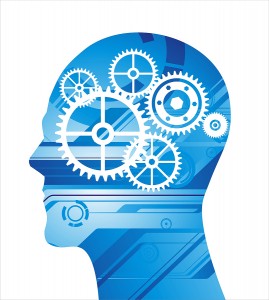Top 40 Brain Fitness & Training Questions/ Course Registration Ends this Sunday
 Let us share below a list of 40 common brain fitness, brain health, brain training questions that we will make sure to address during the upcoming online course, How to Be Your Own Brain Fitness Coach in 2012 (starts March 7th). The questions are sequenced by their approximate order of appearance in the syllabus. We look forward to an engaging, interactive and valuable experience! ***Please remember that course registration ends on Sunday, March 4th.***
Let us share below a list of 40 common brain fitness, brain health, brain training questions that we will make sure to address during the upcoming online course, How to Be Your Own Brain Fitness Coach in 2012 (starts March 7th). The questions are sequenced by their approximate order of appearance in the syllabus. We look forward to an engaging, interactive and valuable experience! ***Please remember that course registration ends on Sunday, March 4th.***
Top 40 Brain Fitness & Training Questions
- How can one define brain fitness
- What is link between stress, focus and memory
- Does “brain age” even exist
- How to enhance overall mental productivity, vs just IQ
- Is there some “ceiling” to my improvement or can I always try more things
- How brain functions evolve with age. What improves, what declines, what should I be paying attention to
- Can lifelong learning delay dementia
- What are specific guidelines to lead a lifestyle that maximizes brain fitness
- How to increase my chances to avoid Alzheimer’s Disease
- How do I know what is part of the normal aging process and what isn’t
- What are the main pillars to enhance cognition, and how do they work
- What are the “active ingredients” for experiences to build new neural pathways
- Are dietary supplements beneficial? How does nutrition and exercise improve cognitive skills?
- What is the state of the science of cognitive fitness? What types of claims make sense?
- Can videogames protect from dementia
- Does stress kill neurons?
- Can we increase the capacity/ plasticity of the brain?
- What are the best preventive steps that can be taken today to maintain brain health over many years?
- What are the types of activities shown to build cognitive reserve
- How can brain training principles can be APPLIED to everyday work and life and learning, not just while doing programs
- Can I improve memory and focus capabilities
- What’s the best evidence for what helps in brain training
- How can I train my brain to focus/concentrate more when I need to focus/concentrate and shut down when I need to or want to sleep
- How to effectively use new products to improve brain function. How do I choose between product A or B?
- How brain training works and the benefits we can expect to receive from it
- How can I evaluate whether the claims are evidence-based
- Is meditation better than yoga for the brain?
- How does brain training generalize to every day life? Is there research to support claims?
- How I can prevent age-related cognitive deterioration / loss / dementia
- How to enhance mental flexibility?
- How do I measure progress and results? How can I track that what I try really works?
- How I go about being my own Brain Fitness Coach
- How do I get started?
- How to evaluate whether real change has occurred?
- How to set up a consistent practise with say 20 minutes everyday
- Will any of this help me at work? How?
- How can the average person develop and self-manage a structured coaching plan in all phases of life that is valid and a good time investment
- What are the three or four things one can do on a daily basis to improve health and prevent impairment with age?
- What can I do in my everyday experiences to keep my brain in great condition, as I have/had several cases of dementia and Alzheimer’s in my family?
- How do I know what’s my baseline and how do I track/maintain positive progress over time?
Instructor and Guest Lecturers
 Instructor: Alvaro Fernandez is the cofounder of SharpBrains, an independent market research firm helping organizations and individuals navigate the emerging brain fitness field, and the coauthor of The SharpBrains Guide to Brain Fitness: 18 Interviews with Scientists, Practical Advice, and Product Reviews, to Keep Your Brain Sharp, recently named a Best Book by AARP. He is a nationally-known speaker and expert, quoted by The New York Times, The Wall Street Journal, New Scientist, CNN, and other media outlets. Alvaro is also produces the largest annual global and virtual conference where scientists, technologists and professionals discuss latest developments in the field. Alvaro holds an MBA and an MA in Education from Stanford University.
Instructor: Alvaro Fernandez is the cofounder of SharpBrains, an independent market research firm helping organizations and individuals navigate the emerging brain fitness field, and the coauthor of The SharpBrains Guide to Brain Fitness: 18 Interviews with Scientists, Practical Advice, and Product Reviews, to Keep Your Brain Sharp, recently named a Best Book by AARP. He is a nationally-known speaker and expert, quoted by The New York Times, The Wall Street Journal, New Scientist, CNN, and other media outlets. Alvaro is also produces the largest annual global and virtual conference where scientists, technologists and professionals discuss latest developments in the field. Alvaro holds an MBA and an MA in Education from Stanford University.
 Guest Lecturer: Alvaro Pascual-Leone, MD, PhD, is the Director of the Berenson-Allen Center for Non-Invasive Brain Stimulation and a Professor of Neurology at Harvard Medical School. Dr. Pascual-Leone researches the physiology of higher cognitive functions with emphasis on the study of brain plasticity in skill acquisition and recovery from injury across the lifespan. Dr. Pascual-Leone obtained an M.D. and a Ph.D. in Neurophysiology from the Faculty of Medicine of Albert Ludwigs University in Germany, and trained at the University of Minnesota and the US National Institutes of Health. He greatly enjoys teaching and is the recipient of numerous awards.
Guest Lecturer: Alvaro Pascual-Leone, MD, PhD, is the Director of the Berenson-Allen Center for Non-Invasive Brain Stimulation and a Professor of Neurology at Harvard Medical School. Dr. Pascual-Leone researches the physiology of higher cognitive functions with emphasis on the study of brain plasticity in skill acquisition and recovery from injury across the lifespan. Dr. Pascual-Leone obtained an M.D. and a Ph.D. in Neurophysiology from the Faculty of Medicine of Albert Ludwigs University in Germany, and trained at the University of Minnesota and the US National Institutes of Health. He greatly enjoys teaching and is the recipient of numerous awards.
 Guest Lecturer: Robert M. Bilder, PhD, ABPP-CN is the Michael E. Tennenbaum Family Professor of Psychiatry and Biobehavioral Sciences at the UCLA David Geffen School of Medicine. Dr. Bilder is also the Chief of Medical Psychology-Neuropsychology at the Semel Institute for Neuroscience and Human Behavior, directs the Tennenbaum Center for the Biology of Creativity; is Co-Director of an NIMH-sponsored Center for Intervention Development and Applied Research focusing on translational research to enhance cognitive control.
Guest Lecturer: Robert M. Bilder, PhD, ABPP-CN is the Michael E. Tennenbaum Family Professor of Psychiatry and Biobehavioral Sciences at the UCLA David Geffen School of Medicine. Dr. Bilder is also the Chief of Medical Psychology-Neuropsychology at the Semel Institute for Neuroscience and Human Behavior, directs the Tennenbaum Center for the Biology of Creativity; is Co-Director of an NIMH-sponsored Center for Intervention Development and Applied Research focusing on translational research to enhance cognitive control.


